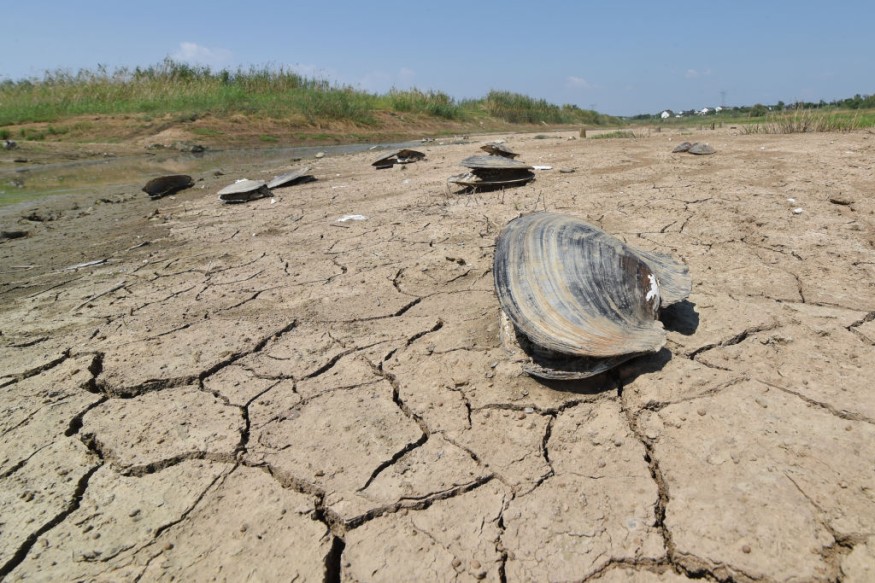As the second week of Cop27 climate negotiations continues, water shortage is on the table. Days are set for conversational discussions on civil society and subjects, including women's rights.

Extensive Discussions
As the Cop27 UN climate conference in Sharm el-Sheikh begins its second week, water and the impact of the climate catastrophe on water shortages will be discussed.
The discussions are supposed to finish on Friday, but they'll probably go at least through Saturday. It's hoped that new commitments and measures will be made on everything from reducing greenhouse gas emissions to providing financial aid to the world's poorest countries.
In addition to the formal negotiations, the Egyptian hosts have planned a series of "thematic days," during which discussions will be held on topics that are crucial to the climate crisis but do not fall under the 1992 treaty under which the 27th conference is being held, the UN Framework Convention on Climate Change.
Also Read: "We are Nearing Irreversible Climate Breakdown" Climate Study Claims
Prioritizing Critical Issues

The hosts are particularly concerned about water since the Nile continues to be the foundation of Egyptian agriculture, industry, and culture. Many people are concerned about how Sharm el-Sheikh, a resort city where 45,000 delegates have assembled for the meetings, will handle its water supply in the future.
On Monday, conversations about how women specifically struggle with the climate catastrophe put gender front and center. According to research, women and girls experience higher rates of violence in communities hit by climatically linked catastrophes and are at a disadvantage when it comes to important matters like obtaining property rights and receiving investment and relief.
Involving women and girls is essential to finding a solution. The climate catastrophe is "a man-made problem with a feminist solution," according to Mary Robinson, a former Irish president and two-time UN climate envoy. They arrived at Cop27 on Saturday and played a crucial role in ensuring that past Cops featured a "gender strategy" for the environment.
Tuesday will see a shift in focus to civic society. The human rights record of Egypt, an authoritarian nation, is appalling, and many dissidents are incarcerated there. At this Cop, civil society initiatives and protests have been severely restricted, and the Guardian has been informed of intimidating incidents. On this day, civil society organizations will make an effort to emphasize the need for free speech to put pressure on governments to address the climate emergency.
A rush of announcements on new renewable energy agreements and alliances in several nations for a "just transition" away from fossil fuels is anticipated on Tuesday, putting energy under the spotlight as well. This entails assisting those who now work in the fossil fuel sector to transition to renewable energy occupations.
Biodiversity Day is on Wednesday. Nature-based solutions, as they are known in the climate jargon, refer to the preservation of the natural world and how it can be combined with combating the climate crisis, such as preserving and regrowing forests, restoring wetlands and peatlands to serve as carbon sinks, or regrowing mangrove swamps to act as barriers against storm surges and rising sea levels.
At Cop26, natural solutions attracted a lot of attention, but this has diminished in Sharm el-Sheikh. Expect to learn more on Wednesday about expectations for Cop15, the upcoming big UN biodiversity summit, which will be held in Canada in a few weeks.
Continuing the Negotiations
The negotiations will continue in the interim, primarily behind closed doors, so that nations may resolve their disagreements. The topics covered include:
- Reducing greenhouse gas emissions to achieve the 1.5C target and ways to assist nations in coping with the effects of extreme weather, such as by repairing coral reefs and mangrove swamps.
- Constructing sea walls.
- Replanting forests.
- Setting up early warning systems.
The funding for these initiatives will also be closely examined from the wealthy to the developing world.
Read also: Global Weirding: Humans Have Drastically Altered the Climate to the Point of Bringing Chaos
For similar news, don't forget to follow Nature World News!
© 2026 NatureWorldNews.com All rights reserved. Do not reproduce without permission.





